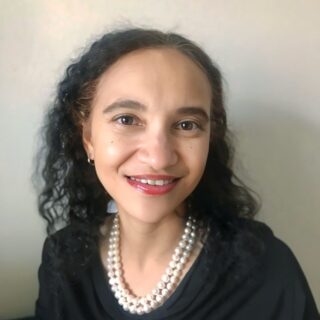IB Theory of Knowledge (TOK): Your Path to IB Success

Jason is a certified teacher specialising in English Literature and Language and IB Theory of Knowledge. He brings over a decade of experience as an IB examiner for TOK and English Language & Literature to his tutoring, ensuring students know exactly what is necessary to excel in their exams, internal assessments and extended essays. His passion for all forms of creativity and expression, and knack for logic and critical thinking give him a well-rounded approach to guiding students on the path to success in their TOK studies. You can find out more about Jason here.
Article reviewed and updated by Jason, 27th June, 2025.
The International Baccalaureate (IB) programme is known for its challenging and holistic approach to education. One of its core components, Theory of Knowledge (TOK), is key in developing your critical thinking and reflective skills. TOK is a unique subject that helps you understand how we know what we know, challenges assumptions, and encourages you to explore knowledge from different perspectives.
In this guide, Jason has offered his expert insights as an IB Theory of Knowledge examiner into the essentials of TOK, how it is assessed, and how mastering this course will set you on the path to success in the IB programme.
Need help with IB TOK?
What is Theory of Knowledge (TOK) in IB?
Theory of Knowledge (TOK) is a required subject in the IB Diploma Programme, and it’s all about getting you to question and reflect on what we know, where that knowledge comes from, and how far it can take us.
TOK challenges you to think critically about how we gain, understand, and share knowledge in different areas of life. It’s an excellent opportunity to push your thinking and look at the world differently.
As Jason says,
TOK can be a bit confusing for many students, because the course resists formulaic thinking and straightforward answers. It can be difficult to know what it’s all about. To be successful in TOK, you have to be willing to question your assumptions about knowledge, including your assumptions about what an IB course should be like!
The TOK syllabus has changed in many ways over the years. It is therefore vital to ensure that you are aware of the current guidelines and requirements. The current course had its first exams in 2022.
Areas of Knowledge (AOKs)
In TOK, we break down knowledge into specific categories known as Areas of Knowledge (AOKs). These categories help us understand how knowledge is organised and approached in different fields. Let’s take a look at the key AOKs:
- Mathematics: Here, we explore mathematical knowledge, including its proofs and logical structure.
- Natural Sciences: This area focuses on the physical world, using the scientific method and empirical evidence to explain natural phenomena.
- Human Sciences: We study social and cultural sciences, such as psychology, sociology, and economics, which help us understand human behaviour and societies.
- History: History allows us to interpret past events, understand historical narratives, and assess the reliability of sources.
- The Arts: This AOK dives into creativity, expression, and the subjective nature of knowledge in the world of art.
Unlike the previous syllabus, Religious Knowledge Systems and Indigenous Knowledge Systems are no longer regarded as AOKs. Instead, those topics are included as optional themes for the TOK course, along with technology, language and politics. Similarly, while Ethics used to be one of the AOKs, it is now integrated into the Knowledge Framework (KF) for each of the Areas of Knowledge (AOKs) listed above.
Each AOK offers unique perspectives on how knowledge is constructed and influences how we see the world. TOK encourages you to explore the underlying methods and principles of the AOKs, helping you understand their unique contributions and their connections to gain a more comprehensive view of knowledge.
Knowledge Questions (KQs) and the TOK themes
Jason explains that the goal of TOK is to learn how to identify and explore Knowledge Questions (KQs). These are open questions about the nature, foundations and limits of knowledge. These are open questions in the sense that they do not have definite answers. While you are encouraged to try to answer KQs, you are not expected to do so with certainty. According to Jason, “Mastering TOK requires that you be comfortable with uncertainty–one of the key principles of the course.”
As a TOK student, you have the opportunity to explore KQs through a number of specific themes. The core theme of the TOK course is “Knowledge and the knower.” Here you are challenged to explore your role as an individual and as a member of knowledge communities in the production and distribution of knowledge. Your teacher will also select two of the five optional themes to structure your particular TOK course. The five optional themes are:
- Knowledge and technology
- Knowledge and language
- Knowledge and politics
- Knowledge and religion
- Knowledge and indigenous societies
Whatever themes your teacher chooses, you will be given the opportunity to explore KQs in a way that suits your own background and interests. As Jason says,
The whole idea of Knowledge Questions can be quite challenging for a lot of students. The key is finding a personal connection to the themes so you can explore how TOK concepts make a difference in your life.

Knowledge Framework (KF)
The Knowledge Framework is a valuable tool to organise Knowledge Questions (KQs) and help you explore and understand the Areas of Knowledge (AOKs) in TOK. It guides you in analysing each AOK by breaking it down into key components, making it easier to understand the unique characteristics and relationships between them.
Scope: This element of the KF looks at the range of topics and issues an AOK covers, helping you define its boundaries and how it fits into the larger picture of human knowledge.
Perspectives: This element highlights the different ways knowledge is viewed across cultures, histories, and individuals.
Methods and Tools: This element is about the specific processes and techniques used in each AOK to generate knowledge.
Ethics: Ethics examines the moral questions that arise in the creation and use of knowledge within each AOK.
The combination of AOKs and the KF helps you approach knowledge from multiple perspectives. It shows you how different methods of knowing interact and shape the way we understand the world. The focus is on understanding the process through which we come to know what we know rather than just gathering information.
What is IB Theory of Knowledge Assessment?: Components and Criteria
IB TOK is assessed through two main components: the TOK Exhibition and the TOK Essay. These are your opportunities to show what you’ve learned and put all the concepts and skills you’ve developed during the course into action.
Both assessments are designed to help you demonstrate your understanding meaningfully, so it’s important to approach them with the same critical thinking and reflection you’ve been practicing.
TOK Exhibition
The TOK exhibition, which was introduced in 2022, is an important part of your final grade, as it makes up one-third of it. In this assessment, you must select three objects that align with one of the 35 available IA (Internal Assessment) prompts. These objects can be anything that resonates with the theme, from books and artworks to photographs or digital items like tweets.
Here’s what you’ll need to do:
- Choose three objects carefully: Pick specific objects that help illustrate and reflect your chosen prompt. They should be meaningful to you, allowing you to connect to TOK concepts.
- Write a 950-word commentary: For each object, you’ll need to write a commentary explaining how it links to the prompt. This is where you’ll dive into how each object represents a unique problem or issue with knowledge. The total word limit for the entire exhibition commentary is 950 words, so you can only write a little over 300 words per object.
- Justify your choices: This is your chance to demonstrate how your selected objects connect to TOK. It’s important to explain why each object is relevant and how it reflects the course’s key concepts.
The exhibition goes beyond simply showcasing objects. It allows you to demonstrate your understanding of TOK practically and creatively. This is an opportunity to show how TOK connects with the real world and present your ideas uniquely and engagingly. So, approach it thoughtfully, and don’t hesitate to bring your creativity into the mix!
Jason emphasises that,
Some students make the mistake of choosing generic objects. Be specific and choose objects that you have a personal connection with. You may be surprised at how easy it is to find TOK concepts in your daily life!
Need help with this subject?
100 % of tutors are certified teachers and examiners
TOK Essay
The TOK essay is a key component of your assessment, making up two-thirds of your final grade. Each exam session, six new prescribed titles are published and you will have to choose one of them for your essay. The titles are designed to challenge you to explore knowledge questions critically. As you write your essay, keep in mind the following:
- Choose a title that excites you and that you have a personal connection with.
- Draw on specific examples from two Areas of Knowledge (AOKs) to back up your argument.
- Make sure to present a balanced discussion, considering KQs from a variety of angles.
- Don’t forget to reflect on the broader implications of your argument and how it impacts our understanding of knowledge.
Jason notes that many students struggle to interpret the prescribed titles, which makes it essential to carefully consider each part of the title.
Once you’ve identified the Knowledge Questions you want to explore, the next step is making sure you have concrete examples to support your arguments.
Approach the essay thoughtfully, and remember that it’s your chance to demonstrate your critical thinking and analytical skills.
How IB TOK is Assessed and Shapes Your IB Score
Along with the Extended Essay (EE), TOK makes up a key part of the IB Diploma core and can earn you up to 3 valuable points towards your overall IB score, so giving them the attention they deserve is essential.
- An external examiner – someone outside your school – grades your TOK essay.
- Your TOK teacher evaluates your exhibition. Both the essay and the exhibition are marked on a scale from 0 to 10. For the exhibition, your score depends on how well you justify your chosen objects and connect them to the prompt.
- Doing well in TOK can make a difference in your final IB score, which, in turn, can positively impact your university applications. So, it’s worth putting in the effort!
While TOK may initially seem abstract, mastering its principles equips you with skills that will serve you well throughout the IB Diploma and beyond.
How Does TOK Help in Understanding the World?
TOK goes beyond preparing for an exam. It’s a course designed to broaden your intellectual horizons and equip you with skills essential for understanding the world’s complexities. Here’s how TOK enhances your understanding:
Develops Critical Thinking Skills
TOK encourages you to question your assumptions, check the validity of what you know, and consider different perspectives. When you engage in critical analysis, you’ll develop the ability to evaluate information more effectively. This is an essential skill, especially in today’s world, where we’re constantly surrounded by information.

Identifies Personal Biases
In TOK, you’ll reflect on your biases and consider how your worldview influences the way you interpret knowledge. Developing this kind of self-awareness is essential — it helps you build a more balanced perspective and recognize the limitations in your own thinking.
Explores Diverse Worldviews
TOK encourages you to explore various cultural, philosophical, and disciplinary perspectives. By reflecting on how different people and communities understand knowledge across contexts, you’ll gain a broader view of the world. This deeper awareness helps you appreciate the diversity of thought that shapes our global society.
Connects Different IB Subjects
One of the best parts of TOK is how it brings together knowledge from different subjects. Whether you’re diving into history, exploring science, or engaging with the arts, TOK shows you how these areas of knowledge connect. This integrated approach makes your learning feel more cohesive and adds deeper meaning to everything you study. It’s all about seeing the bigger picture.
Improves Decision-Making
TOK sharpens your decision-making skills by helping you think critically and consider different viewpoints. Whether you’re facing a moral dilemma or trying to choose the best course of action, TOK gives you the tools to make well-thought-out and informed decisions.
How Does TOK Help in University and Careers?
TOK is an essential skill that will benefit you in university and your future career. Universities value students who can think critically, tackle complex ideas, and communicate clearly. TOK lays the foundation for these skills, helping you stand out in higher education.
The ability to think critically, evaluate information, and make informed decisions is crucial in the workplace. Employers look for individuals who can reflect on their knowledge and apply it effectively, and that’s precisely what TOK helps you achieve.
Do You Need a IB Theory of Knowledge Tutor?
While TOK is a key part of the IB programme, it can be challenging for some students. Getting a TOK tutor can be helpful if you’re finding it difficult to grasp the core concepts, refine your essay, or prepare for your exhibition. A tutor can:
- Break down complex TOK concepts in a way that makes sense.
- Help you structure your essay and exhibition clearly.
- Provide feedback on your work so you can improve.
- Guide you in developing critical thinking and analytical skills.
- Help explore the objects (the exhibition) or examples (the essay) you connect with and feel confident with.
TutorsPlus offers customised TOK tutoring for students facing challenges in the IB programme. One of our happy IB parents had this to say about Jason:
“I am super grateful to Jason’s quick response and availability. But his willingness to dig up resources and support my daughter. His commitment is invaluable.”
Having an IB Theory of Knowledge tutor can give you the support and confidence you need to succeed in this subject and truly excel in your studies.
Summary
Theory of Knowledge is an essential part of your IB experience. It fosters critical thinking, self-reflection, and the ability to make connections across disciplines. By engaging with TOK, you enhance your academic skills while developing life skills that will help you understand the world and confidently navigate your future studies and career. Whether working on the TOK essay, exhibition, or simply strengthening your understanding of the subject, remember that mastering TOK is crucial to IB success.Whether you’re tackling both the simplest and most challenging AOKs or seeking assistance to sharpen your ideas, a TOK tutor can offer the direction and support you require. At TutorsPlus, our TOK tutoring is customised to fit your unique learning preferences and objectives. If you’re feeling unsure or striving for excellence, get in touch with us at 022 731 8148 or to take the next step toward achieving your goals.









